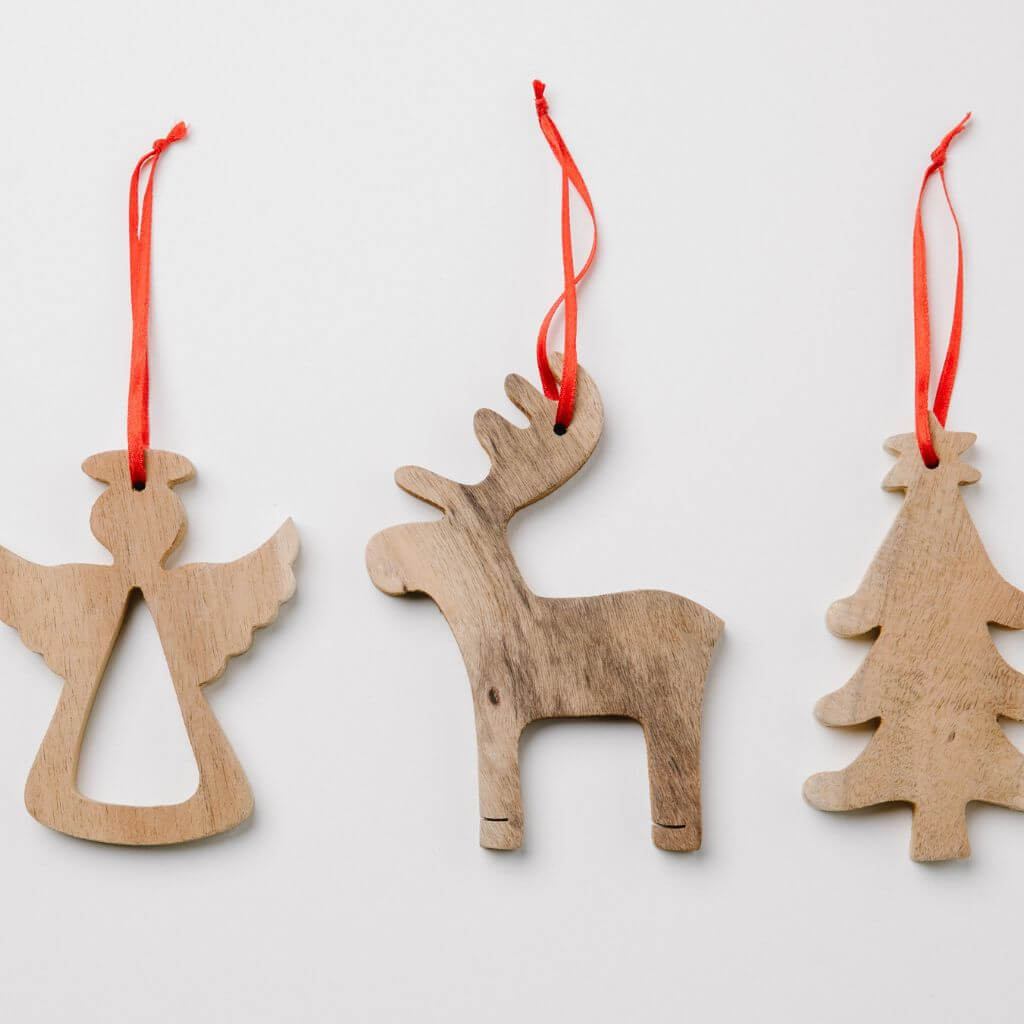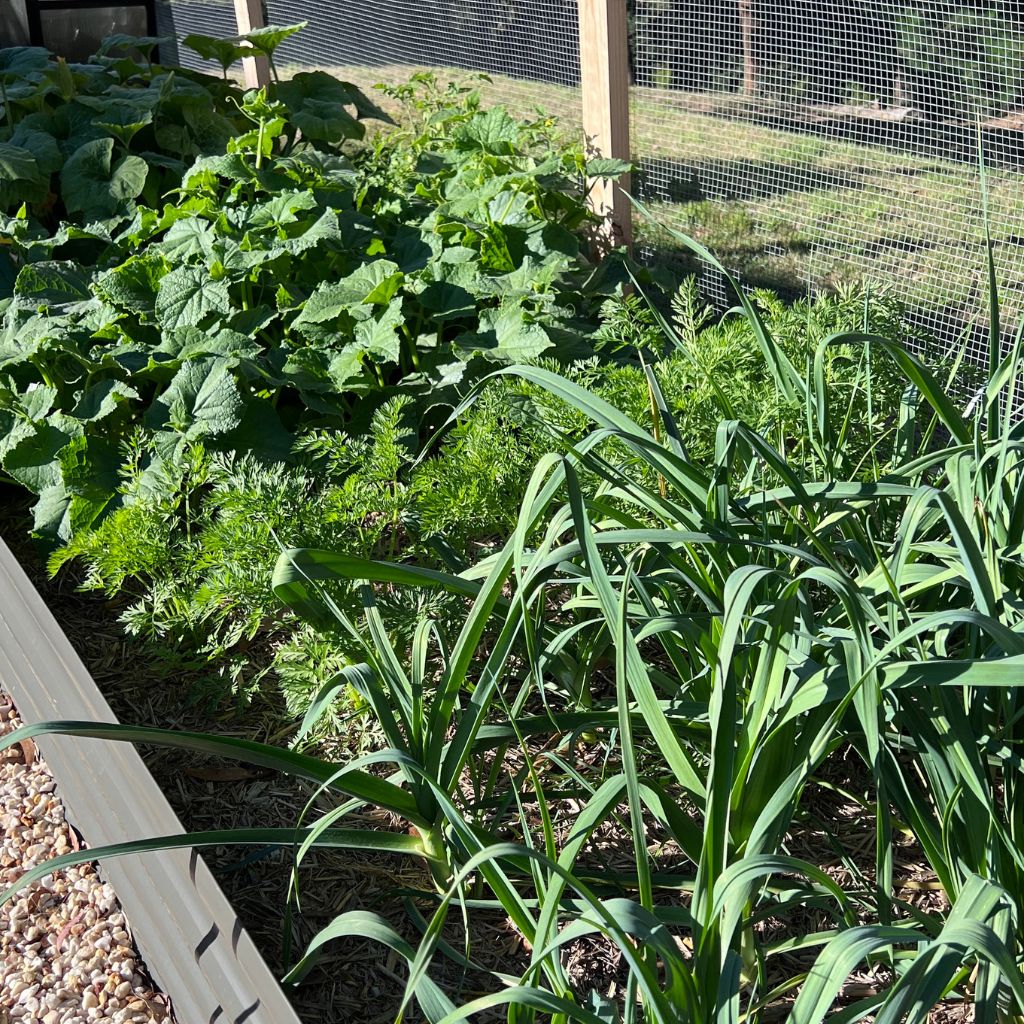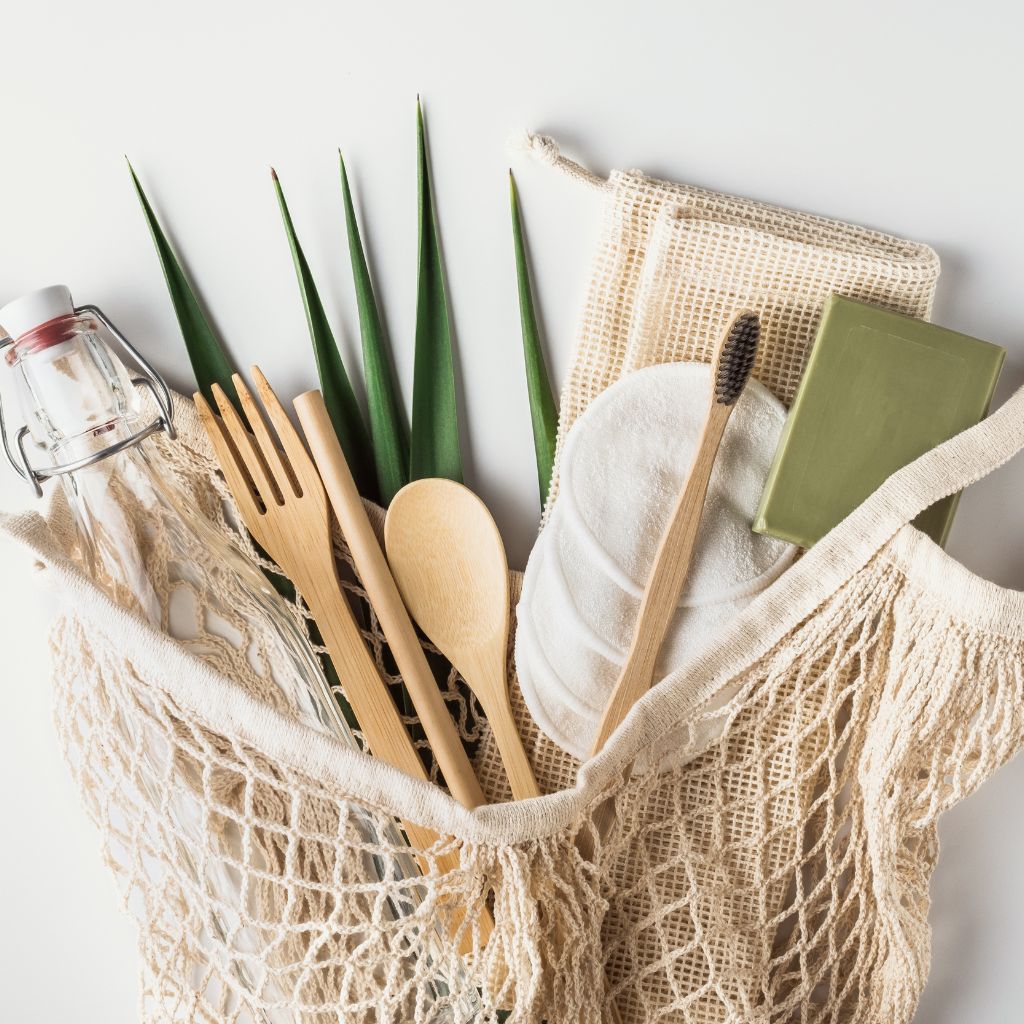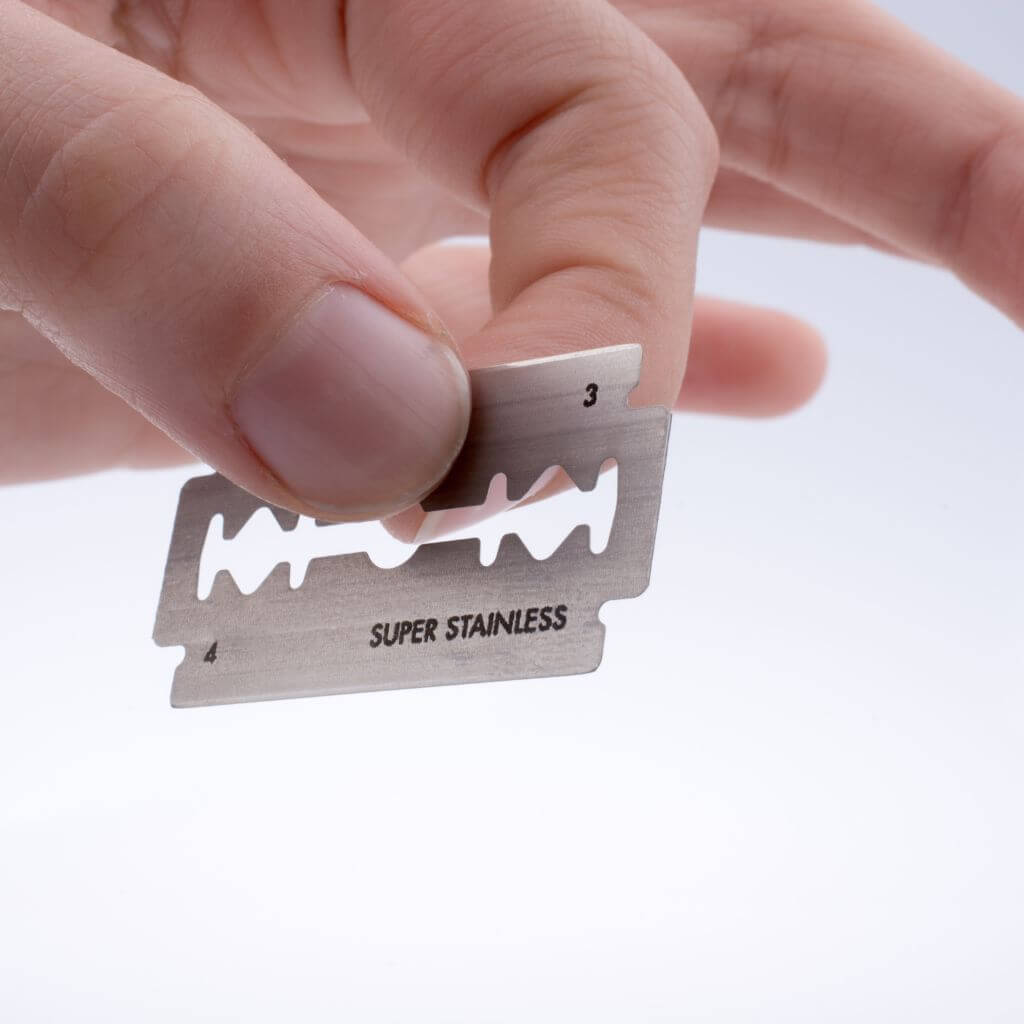
The holiday season is often characterised by a surge in consumption - more gifts, more decorations, more food. For those trying to reduce their environmental impact, Christmas can feel at odds with sustainability efforts. But with some planning and creativity, there are many ways to celebrate Christmas more mindfully and reduce waste.
Should We Even Bother Trying?
Reducing waste at Christmas may seem futile when one household's efforts are just a drop in the ocean. With so much consumption happening all at once, it's easy to think our actions don't matter. However, going zero waste is rarely about perfection - it's about doing better. Every sustainable swap or eco-friendly choice helps, even if we don't eliminate waste completely.
The holidays are a chance to spread awareness and inspire others by demonstrating that Christmas can still be festive and meaningful with less waste. Small changes ripple outwards in our communities. And when many households make incremental improvements, the collective impact is far greater.
Is a Zero Waste Christmas Possible?
A completely waste-free Christmas may not be realistic for most households. However, we can still significantly reduce waste across key areas:
- Gifts: Choose experiences, tickets, charity donations or zero waste gifts like homemade foods. Wrap with recycled paper or try a wrapping-free approach.
- Decorations: Use natural materials like pinecones, foliage, and wood slices. Swap disposable decor for reusable and upcycled options.
- Food: Meal plan, shop local and buy only what you need. Compost leftovers and donate excess to food banks.
- Travel: Opt for public transport or lift shares. Offset flights and car journeys.
While perfection is unrealistic, a low-waste holiday is very achievable. Focus on reductions rather than restrictions for a Christmas that is both sustainable and enjoyable.
Is It Worth the Effort?
Reducing waste takes time, planning and some sacrifices. During the stressful holidays, is it worth the extra effort?
Here are some benefits that make a zero waste Christmas worthwhile:
- Saves money: Buying less, making gifts, and reducing food waste are all great ways to save money.
- Supports eco-friendly businesses: Spending on ethical, sustainable brands helps the green economy grow.
- Less clutter: With fewer disposable items, you’ll have less clutter and waste to discard come January.
- Teaches children sustainable habits: Lead by example and normalize eco-living for the next generation.
- Aligns values with actions: Living more sustainably helps put environmental values into practice.
- Sets an example: Inspire loved ones by demonstrating that sustainable holidays are possible.
- Protects the planet: Every act helps safeguard nature and wildlife for the future.
While minimising waste takes commitment, the benefits make it a truly worthwhile effort for the holidays and beyond.
Should We Feel Guilty About Waste?
For those new to sustainability, falling short of zero waste goals often leads to guilt. But guilt can be detrimental - environmentalism should be about progress, not perfection.
The holidays pose challenges when balancing sustainability with family traditions, gift expectations and indulgent food. Be realistic about balancing waste reduction with enjoyment. Move at your own pace and avoid comparisons.
Most importantly, practice self-compassion. Remind yourself that small steps in the right direction still make a difference. We don't need to be waste-free to live more sustainably.
Focus less on guilt and more on positive progress. Celebrate successes and use them as motivation for further improvement next year.
How to Shop Sustainably For Gifts
Gifting sustainably helps reduce waste and supports ethical businesses. Try some of these:
- Make it yourself: Homemade food gifts, upcycled crafts or personal care products make thoughtful gestures.
- Buy secondhand: Give antiques, collectibles, or vintage finds from charity shops.
- Choose eco-friendly: Pick sustainable, natural, and plastic-free products. Look for ethical certification labels.
- Buy local: Support small businesses and creative makers in your community.
- Gift experiences: Give tickets, passes, vouchers for events, trips, and classes.
- Donate to charity: Donate on someone's behalf to a cause they care about.
- Go plastic-free: Avoid gifts wrapped in plastic packaging. Use recyclable paper or wrapping-free options.
- Send e-cards: Email digital cards instead of paper cards and reduce paper waste.
With some thought, we can still give meaningful gifts while upholding our values and reducing waste.
4 Zero Waste Gift Ideas
- Natural soaps and cosmetics: Make bath salts, lip balms, lotion bars and soaps using natural ingredients like coconut oil, shea butter and essential oils. Package in reusable tins or glass jars.
- DIY food mixes: Make custom spice blends, drink mixes and baked goods in a jar. Use recycled jars and add recipe labels.
- Stainless steel straws: A reusable straw set is a great plastic-free and eco-friendly gift for coffee and smoothie lovers.
- Bamboo utensil set: Give reusable utensils like bamboo cutlery sets, straws, and food containers. Useful for work lunches and takeaway meals.
With creativity and nature-based materials, it's easy to give plastic-free, zero waste gifts.
Opting for an Eco-Friendly Christmas Tree
For many, a lavishly decorated evergreen tree is at the heart of Christmas. With 25-30 million trees sold annually in the United States and 23-26 million in Germany, this tradition has environmental impacts. And that’s just two countries!
Here are some tips for more sustainable trees:
- Buy locally grown: Support tree farms in your area to reduce the tree's carbon footprint.
- Choose potted trees: These have intact roots so they can be replanted outdoors after the holidays.
- Rent a living tree: Some local farms offer potted tree rentals that get returned after Christmas.
- Reuse artificial trees: If you have an old artificial tree, continue using it. When buying new, look for natural materials like wood.
- Make a DIY tree: Get creative with books, recycled materials, or tree branch sculptures.
- Go tree-free: Decorate a houseplant or wall Christmas tree instead.
Support sustainable forestry and give trees a second life!
Light Up Sustainably with Eco-Friendly Lights
Christmas lights help create a festive glow but use a lot of electricity if left on for hours each day. Try these tips to reduce consumption:
- Switch to LED string lights which use 90% less energy than incandescent bulbs. They also last years longer.
- Use timers or smart bulbs to automatically turn lights on for just a few hours in the evenings. Avoid leaving them on all day and night.
- Try solar-powered lights for outdoor decorations. They store energy from the sun during the day to illuminate at night.
Remember to look for the energy rating when buying lights!
Secondhand Decorations
For sustainable and budget-friendly holiday decor, secondhand stores are treasure troves!
- Look for gently used decorations, ornaments, garlands, candles, platters, linens and more. Vintage finds add charm.
- Check thrift stores regularly as they continually put out new holiday items. Don't miss a special piece!
- Clean and mend old decor to give it new life. Add fresh trimmings, wreaths, paint, or decoupage to upcycle finds.
- Buy secondhand then re-donate items after the holidays to keep useful decor in circulation.
- Avoid cheap plastic and battery-operated op shop items. Seek quality, durable materials.
With creativity and an open mind, it's fun to hunt for retro, funky and classic decorations on a budget with the whole family.
How to Minimize Food Waste
Between lavish meals, baking, and over-catering, it's easy for food waste to pile up over Christmas. Try these strategies for reducing the usual excesses:
- Plan meals: Map out Christmas menus and shopping lists so you only buy what you'll use.
- Portion properly: Serve smaller portions and go back for seconds to reduce leftovers.
- Preserve excess: Pickle, can, freeze or ferment surplus food to extend its life.
- Use everything: Pickle broccoli stems, fry potato skins, and blend carrot tops into soup. Maximise ingredients.
- Creative leftovers: Repurpose leftovers into new dishes like turkey pot pies, casseroles, or salads.
- Compost: Put any food scraps like vegetable peelings to good use in a compost bin or worm farm.
- Donate excess: Local charities, food banks and shelters often welcome unneeded food donations.
With good planning and resourcefulness in the kitchen, it’s easy to reduce the amount of edible food ending up in the bin.
What Can I Do With Food Waste?
Some food waste is inevitable, but there are sustainable ways to dispose of scraps:
- Backyard composting: Compost food waste like fruit and vegetable scraps, eggshells, and teabags. Use the nutrient-rich compost to fertilise your garden.
- Community compost: Many local councils offer food waste collection services. Place scraps in the provided bin for large-scale composting.
- Farmer’s markets: Some markets have community compost bins on-site. Check for food scrap drop-off points.
- Worm farms: Vermicomposting uses worms to break down food waste into liquid fertiliser for plants. Suitable for small spaces.
- Chicken feed: Safely feed meat scraps and crushed eggshells to backyard chickens. Excellent protein source!
- Municipal collection: Some councils offer kerbside food waste bins that get commercially composted.
Diverting food waste from landfill reduces greenhouse gas emissions and completes the food cycle. Let’s get creative with scraps!
And Finally
Christmas may seem contrary to sustainability, but with eco-consciousness we can celebrate mindfully. A zero waste Christmas is very achievable by making small changes across key areas like gifting, decor, travel, and food.
While perfection is unrealistic, do your best to reduce waste and then be kind to yourself. Any efforts to consume ethically and cut back on waste make a meaningful difference. Spread joy, not waste, this Christmas!





